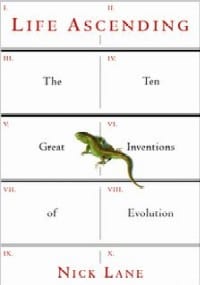
By James Dacey
Yesterday, the biochemist Nick Lane was crowned as this year’s winner of the Royal Society Prize for Science Books. But he may well be the last recipient of this award because the Royal Society has announced that it can no longer afford to finance the prize. It’s a sad state of affairs and could serve to reduce public interest in science in the UK at a time when science budgets are being squeezed.
Lane took the £10,000 prize for his book Life Ascending: The Ten Great Inventions of Evolution, which charts the history of life on Earth through 10 of its most wondrous features, such as sex, photosynthesis and consciousness. Upon winning the award Lane said, “I’ve been following the prize since its inception and I know it’s the highlight of the year for many scientists.”
Among the six books shortlisted for the prize were Why Does E = mc2, co-written by particle physicist Brian Cox, and We Need To Talk About Kelvin by established science writer Marcus Chown.
The prize was created in 1988 as the science writing equivalent of the Booker prize for literature. It was the same year that Stephen Hawking published A Brief History of Time, although interestingly Hawking did not win the 1989 prize, which instead went to Roger Lewin for Bones of Contention, a book about controversies in the search for human origins
Over the years physics-related books have fared well, with winners including David Bodanis in 2006 for Electric Universe: How Electricity Switched on the Modern World and Philip Ball in 2005 for Critical Mass: How One Thing Leads to Another.
But in recent years the prize has been struggling to attract media attention after the pharmaceutical company Aventis withdrew its sponsorship in 1997. Now, the Royal Society has said that it will terminate the awards unless they can get financial support from an external sponsor.



